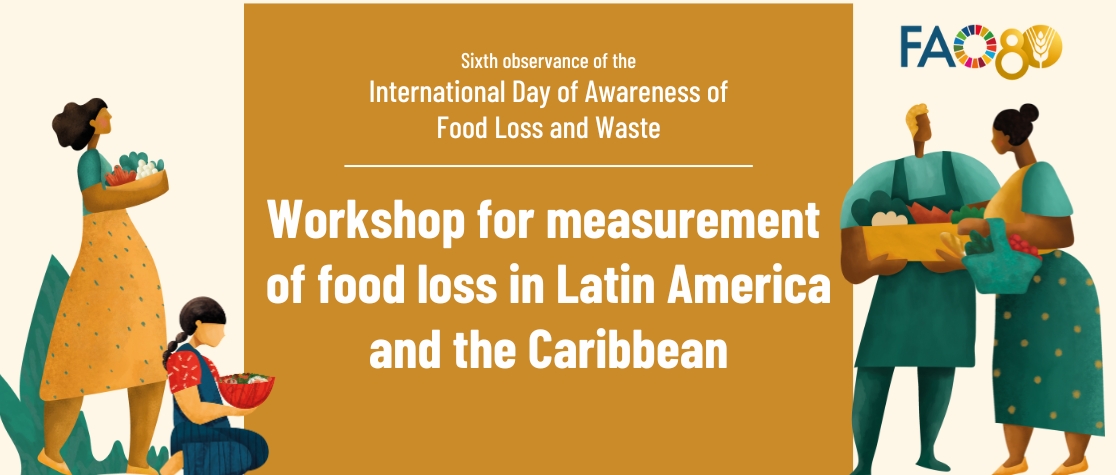Workshop on Measuring Food Losses in Latin America and the CaribbeanOnline Event
Did you know that 13% of food was lost in 2021 between harvest or collection and its arrival on the shelves? This equates to 931 million tons or 120 kilograms per capita.
Virtual Event, 29/09/2025 - 01/10/2025

©FAO
Background
In the context of the Commemoration of the International Day of Awareness on Food Loss and Waste, the Food and Agriculture Organization of the United Nations (FAO) is inviting to the Workshop to the Workshop on Measuring Food Losses in Latin America and the Caribbean to learn the methodology for constructing the Food Loss Index (FLI), based on which countries could begin to report on their progress in their commitment to reduce post-harvest losses along their food chains by 2030.
During the meeting, statistical frameworks for data collection and information gathering along the value chain to measure loss percentages will be discussed. Will also provide a forum for countries that have worked on measuring food loss to share their experiences and key methodological strategies, facilitating the strengthening of national capacities aimed at reducing food losses.
Review the AGENDA
Day 1 - Monday 29 of September
| Inaugural Session | |
| 09.30 – 10.30 | Opening ceremony |
| 10.30 – 11.00 | Break |
| Session 1: ¿Why is it important to monitor food loss and how is it measured? | |
| 11.00 – 11.05 | Dynamic interaction with the audience |
| 11.05 – 11.35 | Quick presentations:
|
| 11.35 – 12.30 | Roundtable and discussion |
| 12.30 - 14.00 | Lunch |
| Session 2: From concept to a national strategy of measurement | |
| 14.00 – 15.30 | Experiences of Mexico, Colombia and Peru |
| 15.30– 15.45 | Break |
| 15.45 – 17.15 | Experiences of Chile, Costa Rica and Paraguay |
| 17.15 – 17.30 | Closure |
Day 2 - Tuesday 30 of September
| Session 3: Data gathering | |
| 09.00 – 11.00 | Experiences and results of Peru, Mexico and Colombia of data collecting pilots |
| 11.00 - 11.15 | Break |
| 11.15 – 12.15 | International experiences of data collection on farms through national agricultural surveys |
| 12.15 – 12.30 | Discussion about data collection of food loss through ENAS |
| 12-30 - 14.00 | Lunch |
| Session 4. Other tools and efforts to reduce food losses | |
| 14.00 – 14.30 | The FLAPP, technical aspects, methodology and results (FAO’s Chief Economist Office) |
| 14.30 – 15.00 | Experience using the FLAPP to quantify and reduce losses on the field (DR) |
| 15.00 – 15.15 | Break |
| 15.15 – 16.45 | Regional initiatives to reduce losses and waste (FAORLC, BR, AR, CH) |
| 16.45 – 17.00 | Closure |
Day 3 - Wednesday 01 of October
| Session 5. Strategies to incorporate measurements of food losses in national statistics systems | |
| 09.00 – 10.30 | General vision about the incorporation of data on SDG 12.3.1 in the SNE
|
| 10.30 - 10.45 | Break |
| 10.45 - 11.30 | Roundtable about the linkage between SNE and public policies with Argentina, Costa Rica, Uruguay and Chile |
| 11.30 - 12.00 | Interactive discussion on next steps |
| 12.00 – 14.00 | Lunch |
Contact
Communicator for the Regional Better Nutrition Priority
FAO Regional Office for Latin America and the Caribbean

.png?Status=Master&sfvrsn=e0455797_2)